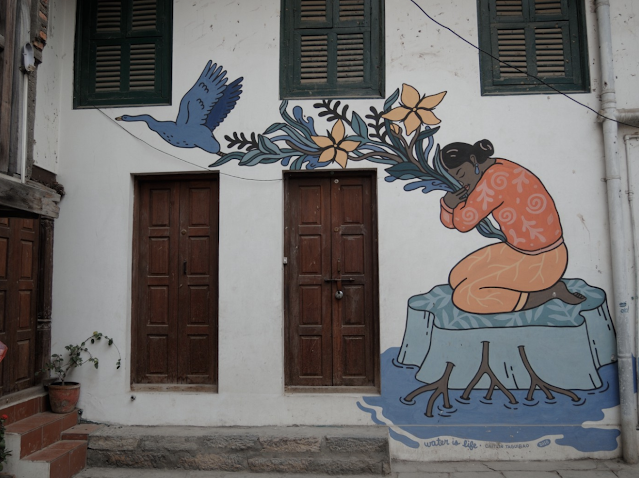Oh, and one last thing before I tap out
All of my blogs have emphasised the need to actively listen, better understand and engage with local communities to bring about effective change in the Water, Sanitation and Hygiene (WASH) sector. This all leads back to the point I made in my very first blog. We need to work on decolonialising the WASH sector. Boyes (2019) states:
"While the physical colonisation of countries of the global South by countries of the global North may have ended, knowledge colonialism continues."
He has a point. Design strategies, policy documents, frameworks etc. for WASH interventions remain based on 'unrealistic assumptions' from the North, with little contribution in review, editing or authoring from Africans themselves (Omamo and Farrington, 2004; Luseka, 2020). As long as these cultural idealisations continue, knowledge colonialism will prevail.
But why is there such a knowledge imbalance?
The answer might be deeply rooted in the notion of development itself. Escobar argues that development as a concept is deeply political (Escobar, 1995). It involves knowledge, power, representation and negotiation at a local, national and global level, which can easily result in imbalance. While I agree, I do also think there is more to it. I argue that knowledge colonialism aligns with the argument Holmén makes about how development is seen as a 'project' and not as a 'process' (Holmén. 2015). Note that I have used the word 'intervention' a lot in my blogs. It may sound blunt or even dramatic but I have done this on purpose because an intervention is more what development seems to be like - a direct 'undertaking' instead of 'something we can learn about' (Holmén 2015). Development is based on the mindset that the South needs to 'catch up' with the West, which justifies building the WASH sector from Western cultural idealisations. There is more of a priority to make an impact quickly in order to defend the money being spent from donor countries, rather than to understand and meet the priorities and needs of the South. I use the word intervention because it seems we go in thinking we know everything but we don't. And the success rate of WASH initiatives prove this (Holmén 2015).
How then do we decolonialise knowledge?
This begins with exploring the legacy of colonialism and social injustice in the WASH sector. Adali advocates for a 'systems thinking' approach, where we move away from an analytical point of view to a holistic one (Adali, 2020). Taking the example of cultural hygiene norms and taboos, instead of looking at it as a problem and dissecting it, we should accept the unknown or different and take an interest in incorporating it into the development process to bring about change, There is also a requirement for more innovative uptake of power-sharing and horizontal leadership, such as breaking down exclusive networks of hierarchal power structures in community-led management. In order to do so, safe spaces should be established for inclusive and respectful communication (with a focus on elevating the platform for disadvantaged groups) so that African communities, scholars and individuals are able to be active agents of change, making them part of knowledge production and not just knowledge consumption.
Decolonising the WASH sector is crucial if we want to see more long-term success in WASH projects across Africa. I say it like success is an option, but it's not. Success in delivering WASH services should be a guarantee because let's not forget that at the end of the day, access to clean water and sanitation is a basic human right that every individual in Africa and in every other country, should have.
Thanks for making it to the end. It's been a pleasure.


Comments
Post a Comment